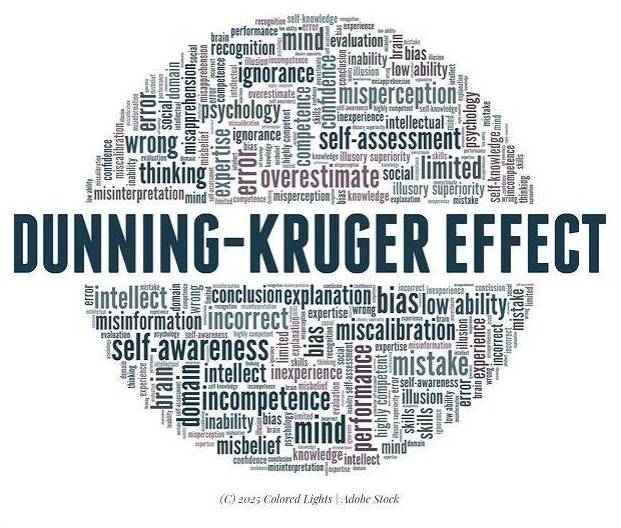by Michael R. Grigsby, Editor, (SPA)

When We Think We Know More Than We Do: Why It Matters in Local Politics
Somerset, Kentucky---In communities like Somerset and across Kentucky, we take pride in having strong opinions and speaking our minds. That is a good thing; democracy depends on engaged citizens. But what happens when people feel confident about political issues they don’t actually understand well? That is where a concept from psychology, called the Dunning–Kruger effect, comes in.
The Dunning–Kruger effect explains how people who lack experience or knowledge in a subject can mistakenly overestimate their understanding. In other words, sometimes the less we know, the more confident we feel—because we do not yet realize what we do not know. This is not about intelligence. It is about self-awareness. To know how much you truly understand about a topic (e.g., taxes, school funding, or zoning laws), you have to already know a little something about how those systems work. When people do not, they may unknowingly spread misinformation or make voting decisions based on false assumptions.
Researchers have studied this in politics. They have found that people who scored low on political knowledge tests often rated themselves as highly informed. Worse still, partisan messaging (when an issue is framed by political loyalty) can exacerbate overconfidence even further. Social media exacerbates the issue by showing people more of what they already believe and less of what might challenge them. That echo chamber leads to groupthink, which can have a dramatic impact on almost all aspects of our community.
Why does this matter?
At the local level, overconfidence about complex topics can lead to:
• Support for poorly thought-out policies
• Mistrust of experts or institutions
• Erosion of informed public dialogue
And it is not just about citizens. Local officials, school board members, and community leaders can also fall into this trap, especially when making decisions in areas outside their professional expertise. Confidence does not always equal competence.
So, what can we do?
1. Promote political literacy: Encourage honest conversations about how things work: local taxes, school budgets, emergency planning, etc.
2. Be open to learning: Ask questions, fact-check information, and seek out multiple perspectives, especially ones you might disagree with.
3. Hold leaders accountable, but reasonably: Expect them to consult experts when needed, not just rely on gut instinct.
4. Avoid quick judgments: Complex issues deserve more than quick posts or heated soundbites.
Final Thoughts
We do not need everyone to be an expert, but we do need people to be humble about what they do not know and curious enough to learn. That is how communities grow stronger, decisions improve, and democracy works the way it’s supposed to, right here at home.
Add comment
Comments